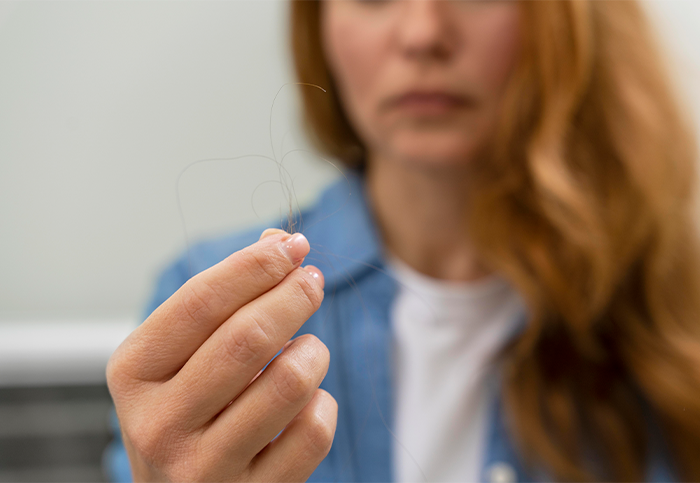What To Do When You Don't Get Enough Sleep?
Sleep is one of the most important aspects of our daily lives. It helps us recharge, refresh and rejuvenate our minds and bodies. However, many of us often struggle with getting enough sleep, leading to a range of consequences such as fatigue, lack of focus, and mood swings. If you're having trouble sleeping, insomnia, and feeling tired & drained, don't worry, you're not alone. Here are some practical tips to help you get the sleep you need.

10 Healthy Habits for Better Sleep
Unwind like never before and improve your sleep with these ten healthy habits. From relaxing before bed to creating the perfect sleep atmosphere, improve your sleep quality and feel refreshed every day. Sleep well, and feel great!

1. Stick To Your Regular Sleep Schedule
Try to go to bed and wake up at the same time every day, even on weekends. This helps regulate your body's natural sleep-wake cycle and makes it easier to fall asleep at night.
2. Create A Sleep-Friendly Environment
Your bedroom should be relaxed, dark, and quiet, with a comfortable mattress that supports your needs. Use curtains or blinds to block out any light because blue light, in particular, may interfere with the melatonin production in the brain. Moreover, using a white noise machine can also help you sleep better.
3. Avoid Intake of Caffeine and Alcohol
Caffeine can disrupt sleep, and alcohol can also interfere with sleep quality. Try to avoid both of these substances, especially in the hours leading up to bedtime.
4. Exercise Regularly
Regular exercise can help you sleep better, but avoid intense exercise close to bedtime as it can make it harder to fall asleep. Aim to exercise for at least 30 minutes a day, and try to finish your workout at least a few hours before bed.
5. Stop Your Screen Usage Before Going to Bed
The blue light emitted by electronic devices such as phones, laptops, and televisions can interfere with your natural sleep-wake cycle. Avoid screens for at least an hour before bedtime, and consider turning off all the blue lights.
6. Relax Before Bedtime
Try to create a bedtime routine that helps you relax and unwind before going to sleep. This might include reading a book, meditating, taking a warm bath, or practicing deep breathing exercises.
7. Limit Your Naps
Napping can be helpful, especially if you didn't get enough sleep the night before. But try to limit your naps to no more than 20-30 minutes, and avoid napping after 3 pm to avoid disrupting your night sleep schedule.
8. Manage Your Stress Naturally
Stress can be a culprit to disrupt your normal sleep cycle. Limit it yourself; otherwise, it will limit your life. Stress is a silent killer of your emotions as well as your physical & mental health!
9. Take A Melatonin Supplement
Take good quality food supplements which contain melatonin, as melatonin is a hormone produced by the brain that supports a healthy and normal sleep-wake cycle. If your brain doesn't make enough melatonin due to any reason, you may not be able to have quality sleep at night. If this is the case, consider taking a melatonin supplement to minimize the risk of insomnia and jet lag problems.
10. Consult Your Doctor
If you're having persistent sleep problems, it's important to see a doctor. They will help you diagnose and treat underlying medical conditions causing sleep troubles.
Conclusion:
In conclusion, getting enough sleep is critical to our overall health and well-being. By following these tips, you can improve the quality of your sleep and wake up feeling refreshed and ready to tackle the day ahead. If you have persistent sleep problems, don't hesitate to seek medical advice. Remember, good sleep at night is an investment in your health, so take the time to prioritize it.
References:
- https://www.webmd.com/sleep-disorders/melatonin-dos-donts
- https://www.medicalnewstoday.com/articles/325353
- https://www.drweil.com/health-wellness/body-mind-spirit/sleep-issues/natural-sleep-aids-tips/



